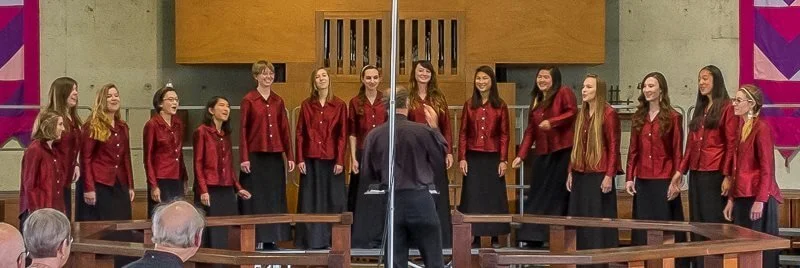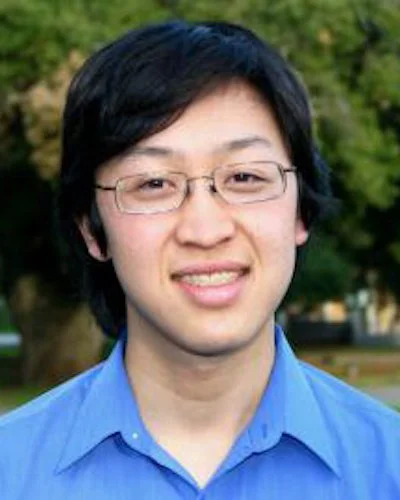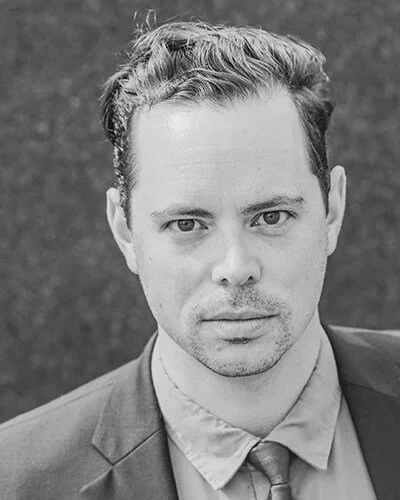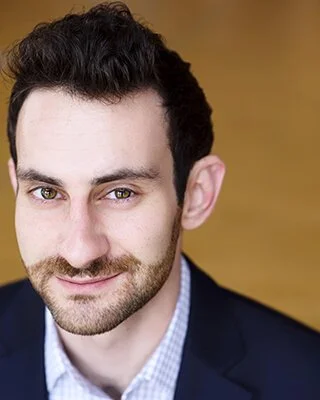Cantata Collective Program 13
March 22, 2020 CANCELED: New Date TBD
Johann Sebastian Bach (1685-1750)
Christus, der ist mein Leben, BWV 95
1. Chorus and Recit: Christus, der ist mein Leben
2. Recit: Nun falsche Welt!
3. Chorale: Valet will ich dir geben
4. Recit: Ach könnte mir doch bald so wohl geschehn
5. Aria: Ach, schlage doch bald, selge Stunde
6. Recit: Denn ich weiss dies
7. Chorale: Weil du vom Tod erstanden bist
Wohl dem, der sich auf seinen Gott, BWV 139
1. Chorus: Wohl dem, der sich auf seinen Gott
2. Aria: Gott ist mein Freund; was hilft das Toben
3. Recit: Der Heiland sendet ja die Seinen
4. Aria: Das Unglück schlägt auf allen Seiten
5. Recit: Ja, trag ich gleich den grössten Feind in mir
6. Chorale: Dahero Trotz der Höllen Heer!
Piedmont East Bay Children’s Choir, Eric Tuan, Artistic Director
Michael Jankosky, tenor
Simon Barrad, bass
Marc Schachman & Michael Dupree, oboe d'amore
Kati Kyme & Lisa Weiss, violin
Anthony Martin, viola
William Skeen, cello
Kristin Zoernig, bass
Katherine Heater, organ
Guest Artists
Piedmont East Bay Children’s Choir
Eric Tuan
Born and raised in the San Francisco Bay Area, Eric Tuan is highly sought after as a choral conductor, composer, and collaborative keyboardist. Tuan received his B.A. in Music with Honors from Stanford University, and completed a Master of Music in Choral Studies with Distinction at the University of Cambridge with the support of a Gates Cambridge Scholarship. Tuan started his musical journey in the Piedmont East Bay Children’s Choir as a young chorister, and is currently on faculty as Ecco conductor and composer-in-residence. He will take over as Artistic Director of the internationally recognized program in July 2019.
Tuan currently serves as the founding Artistic Director of Convivium, the Peninsula-based chamber chorus he founded in 2012, and as Director of Music at Christ Episcopal Church, Los Altos. His dedication to the creation and exploration of new music has led him to conduct and perform the world premieres of over thirty works. Tuan has sung professionally with Volti, Cappella SF, and the Philharmonia Baroque Chorale, and has received acclaim for his sensitive work as a collaborative pianist, continuo player, and repetiteur.
Michael Jankosky
Hailing from Pittsburgh, Pennsylvania, tenor Michael Jankosky has performed with many San Francisco Bay Area companies. He recently made his solo debut with the San Francisco Symphony in Mendelssohn’s Symphony 2 “Lobgesang” under the baton of Sir Andras Schiff. This was followed by a performance as tenor soloist with the San Francisco Symphony Chorus’ performance of Bach’s St. John Passion.
Other recent concert performances include Bach’s Cantatas 78 & 125 with the Cantata Collective and Pacific Boychoir Academy; Bach’s Christmas Oratorio, Mozart’s Mass in C minor, Amy Beach’s Canticle of the Sun, both JS Bach & CPE Bach Magnificat with the SF Choral Society; tenor soloist for Bach St. John’s Passion with the UC Davis Early Music Ensemble, and the Rachmaninoff All-Night Vigil with the Pacific Boychoir Academy. He gave the premiere workshop performances of David Garner’s opera Mary Pleasant at Land’s End. Recent operatic credits include The Painter/Foreigner in West Edge Opera’s production Berg’s Lulu, Richard Smythe in Jake Heggie’s The End of the Affair, the tenor soloist in Handel’s L’Allegro, il Penseroso, ed il Moderato with American Bach Soloists, Benedict in Berlioz’ Beatrice & Benedict, Sam in Floyd’s Susannah with San Francisco Parlor Opera, Orönte in Handel’s Alcina with the SFCM Baroque Ensemble, Fenton in Verdi’s Falstaff with North Bay Opera, Rinuccio in Puccini’s Gianni Schicchi and Brighella in Richard Strauss’ Ariadne auf Naxos. Besides opera, he also enjoys performing concert music ranging from the Baroque to modern eras.
Mr. Jankosky has sung in master classes with Frederica von Stade, Christine Brewer, Gidon Saks, Warren Jones, Roger Vignoles, Martin Katz, and Jeffrey Thomas. He received his Bachelor of Music from the Conservatory of Music at Baldwin-Wallace College and his Master of Music from the San Francisco Conservatory of Music.
He is an avid cyclist and hiker.
Simon Barrad
The versatility of “gorgeous voiced” baritone, Simon Barrad, has been heard across the United States and Europe in opera, Lieder, and oratorio concerts. A lover of music both old and new, he has recently sung with such companies and festivals as the Marlboro Music Festival, Art of the Piano Festival, Virginia Arts Festival, the Tanglewood Music Center, Conspirare, Cincinnati Opera, and the Los Angeles Bach Festival. He has collaborated with artists including Mitsuko Uchida, Jonathan Biss, Awadagin Pratt, and Ignat Solzhenitsyn.
In 2015/16 as a Fulbright scholar in Helsinki, Mr. Barrad toured southern Finland with his Musical Madeleine recital, and gave lectures and private lessons promoting contemporary American art song abroad. His recent performances of Finnish and American music have brought him wide acclaim as a recitalist, headlining in venues including the Berlin Philharmonie, Helsinki’s Musiikkitalo, and Finland’s National Opera House.
A passionate linguaphile, Mr. Barrad recently completed a word for word translation and IPA transcription of Tchaikovsky’s Iolanta and is currently working on a side-by-side translation of the librettos of Shostakovich’s Lady Macbeth of the Mtsensk District and Katerina Izmailova. He is a native of Long Beach, California, and recently moved to the Bay Area.
Bach Cantata Translations
BWV 95 - "Christus, der ist mein Leben"
| Cantata for the Sixteenth Sunday after Trinity | |
| 1. Chor und Rezitativ T Christus, der ist mein Leben, Sterben ist mein Gewinn; Dem tu ich mich ergeben, Mit Freud fahr ich dahin. ("Christus, der ist mein Leben," verse 1) Mit Freuden, Ja mit Herzenslust Will ich von hinnen scheiden. Und hieß es heute noch: Du mußt! So bin ich willig und bereit, Den armen Leib, die abgezehrten Glieder, Das Kleid der Sterblichkeit Der Erde wieder In ihren Schoß zu bringen. Mein Sterbelied ist schon gemacht; Ach, dürfte ichs heute singen! Mit Fried und Freud ich fahr dahin, Nach Gottes Willen, Getrost ist mir mein Herz und Sinn, Sanft und stille. Wie Gott mir verheißen hat: Der Tod ist mein Schlaf geworden. ("Mit Fried und Freud ich fahr dahin," verse 1) |
1. Chorus and Recitative T Christ is my life, death is my reward; to which I abandon myself, I joyfully depart from here. With joy, indeed with heart-felt delight I wish to depart from here. Even if today commanded: you must! Yet I am willing and ready to place my poor body, my exhausted limbs, the garment of mortality again in the earth and in its bosom. My funeral song is already completed; ah, that I might sing it today! With peace and joy I depart in God's will, My heart and mind are comforted, calm, and quiet. As God had promised me: death has become my sleep. |
| 2. Rezitativ S Nun, falsche Welt! Nun habe ich weiter nichts mit dir zu tun; Mein Haus ist schon bestellt, Ich kann weit sanfter ruhn, Als da ich sonst bei dir, An deines Babels Flüssen, Das Wollustsalz verschlucken müssen, Wenn ich an deinem Lustrevier Nur Sodomsäpfel konnte brechen. Nein, nein! nun kann ich mit gelassnerm Mute sprechen: |
2. Recitative S Now, false world! Now I will have nothing more to do with you; my house is already prepared, I can rest much more peacefully than when I once in your midst, by your waters of Babylon, had to swallow the salt of lust; than when in your valley of pleasure I could pluck only the apples of Sodom. No, no! now I can say with composed courage: |
| 3. Choral S Valet will ich dir geben, Du arge, falsche Welt, Dein stündlich böses Leben Durchaus mir nicht gefällt. Im Himmel ist gut wohnen, Hinauf steht mein Begier. Da wird Gott ewig lohnen Dem, der ihm dient allhier. ("Valet will ich dir geben, verse 1) |
3. Chorale S I say farewell to you, you wicked, false world, your life of constant evil pleases me not at all. There is a good life in heaven, my desire is placed there. There God will eternally reward him, who serves Him here. |
| 4. Rezitativ T Ach könnte mir doch bald so wohl geschehn, Daß ich den Tod, Das Ende aller Not, In meinen Gliedern könnte sehn; Ich wollte ihn zu meinem Leibgedinge wählen Und alle Stunden nach ihm zählen. |
4. Recitative T Ah, that it might soon happen to me, that I could see death, the end of all suffering, in my limbs; I would choose it for my body's object and number all the hours by it. |
| 5. Arie T Ach, schlage doch bald, selge Stunde, Den allerletzten Glockenschlag! Komm, komm, ich reiche dir die Hände, Komm, mache meiner Not ein Ende, Du längst erseufzter Sterbenstag! |
5. Aria T Ah, strike quickly, blessed hour, the very last bell-stroke! Come, come, I reach my hand to you, come, bring my suffering to an end, you long sighed-for day of my death! |
| 6. Rezitativ B Denn ich weiß dies Und glaub es ganz gewiß, Daß ich aus meinem Grabe Ganz einen sichern Zugang zu dem Vater habe. Mein Tod ist nur ein Schlaf. Dadurch der Leib, der hier von Sorgen abgenommen, Zur Ruhe kommen. Sucht nun ein Hirte sein verlornes Schaf, Wie sollte Jesus mich nicht wieder finden, Da er mein Haupt und ich sein Gliedmaß bin! So kann ich nun mit frohen Sinnen Mein selig Auferstehn auf meinen Heiland gründen. |
6. Recitative B For I know this and believe it with complete certainty, that from my grave I have a definite path to the Father. My death is only a sleep, through which my body, removed from worry here, shall come to rest. If a shepherd now seeks his lost sheep, how shall Jesus not find me again, since He is my head and I am one of His members! Thus I can now, with joyful spirit, establish my blessed resurrection in my Savior. |
| 7. Choral Weil du vom Tod erstanden bist, Werd ich im Grab nicht bleiben; Dein letztes Wort mein Auffahrt ist, Todsfurcht kannst du vertreiben. Denn wo du bist, da komm ich hin, Daß ich stets bei dir leb und bin; Drum fahr ich hin mit Freuden. ("Wenn mein Stündlein vorhanden ist, verse 4) |
7. Chorale Since You have risen from death, I will not remain in the grave; Your last word is my departure, You can drive away the fear of death. For wherever You are, there I shall come, so that I will always be and live with You; therefore I depart with joy. |
| "Christus, der ist mein Leben," verse 1: 1609; "Mit Fried und Freud ich fahr dahin," verse 1: Martin Luther 1524 (mov't. 1); Valet will ich dir geben, verse 1: Valerius Herberger 1613 (mov't. 3); "Wenn mein Stündlein vorhanden ist, verse 4: Nikolaus Herman 1560 (mov't. 7) | |
|
©Pamela Dellal
|
|
BWV 139 - "Wohl dem, der sich auf seinen Gott"
| Cantata for the Twenty-third Sunday after Trinity | |
| 1. Chorale Wohl dem, der sich auf seinen Gott Recht kindlich kann verlassen! Den mag gleich Sünde, Welt und Tod Und alle Teufel hassen, So bleibt er dennoch wohlvergnügt, Wenn er nur Gott zum Freunde kriegt. ("Wohl dem, der sich auf seinen Gott," verse 1) |
1. Chorale Fortunate the person who upon his God can place a truly childlike reliance! Although sin, the world, and death and all the devils may hate him, nevertheless he remains well pleased, if only he has won God as his friend. |
| 2. Arie T Gott ist mein Freund; was hilft das Toben, So wider mich ein Feind erhoben! Ich bin getrost bei Neid und Haß. Ja, redet nur die Wahrheit spärlich, Seid immer falsch, was tut mir das? Ihr Spötter seid mir ungefährlich. |
2. Aria T God is my friend; what use is the raging which an enemy might raise against me! I am assured amid envy and hate. Yes, even speak the truth rarely, be always false, what does it matter to me? You mockers are not a threat to me. |
| 3. Rezitativ A Der Heiland sendet ja die Seinen Recht mitten in der Wölfe Wut. Um ihn hat sich der Bösen Rotte Zum Schaden und zum Spotte Mit List gestellt; Doch da sein Mund so weisen Ausspruch tut, So schützt er mich auch vor der Welt. |
3. Recitative A The Lord indeed sends His own right in the middle of the wolf's fury. All around him the evil rabble with harm and humiliation has gathered itself with trickery; yet since His mouth speaks such wise proverbs, thus he protects me even from the world. |
| 4. Arie B Das Unglück schlägt auf allen Seiten Um mich ein zentnerschweres Band. Doch plötzlich erscheinet die helfende Hand. Mir scheint des Trostes Licht von weiten; Da lern ich erst, daß Gott allein Der Menschen bester Freund muß sein. ("Wohl dem, der sich auf seinen Gott," verse 3) |
4. Aria B Misfortune on every side winds about me a hundredweight chain. Yet suddenly His helping hand appears. The light of consolation appears to me from afar; thus I learn for the first time, that God alone must be the best friend of humanity. |
| 5. Rezitativ S Ja, trag ich gleich den größten Feind in mir, Die schwere Last der Sünden, Mein Heiland läßt mich Ruhe finden. Ich gebe Gott, was Gottes ist, Das Innerste der Seelen. Will er sie nun erwählen, So weicht der Sünden Schuld, so fällt des Satans List. |
5. Recitative S Indeed, though I bear the worst enemy in me, the heavy burden of sin, my Savior will let me find peace. I give to God what is God's, the inmost part of my soul. If He now chooses it, then the guilt of sin fades away, then Satan's deceit is conquered. |
| 6. Choral Dahero Trotz der Höllen Heer! Trotz auch des Todes Rachen! Trotz aller Welt! mich kann nicht mehr Ihr Pochen traurig machen! Gott ist mein Schutz, mein Hilf und Rat; Wohl dem, der Gott zum Freunde hat! ("Wohl dem, der sich auf seinen Gott," verse 5) |
6. Chorale Therefore defiance to the host of hell! Defiance also to the vengeance of death! Defiance to the whole world! No more can your blows make me sad! God is my Protector, my aid and my counsel; fortunate the person who has God as a friend! |
| "Wohl dem, der sich auf seinen Gott," Johann Christoph Rube 1692 (verses 1,3,5 - mov'ts. 1,4,6; source for the other movements) | |
|
©Pamela Dellal
|
|
Texts and Translations courtesy of Pamela Dellal, Emmanuel Music




